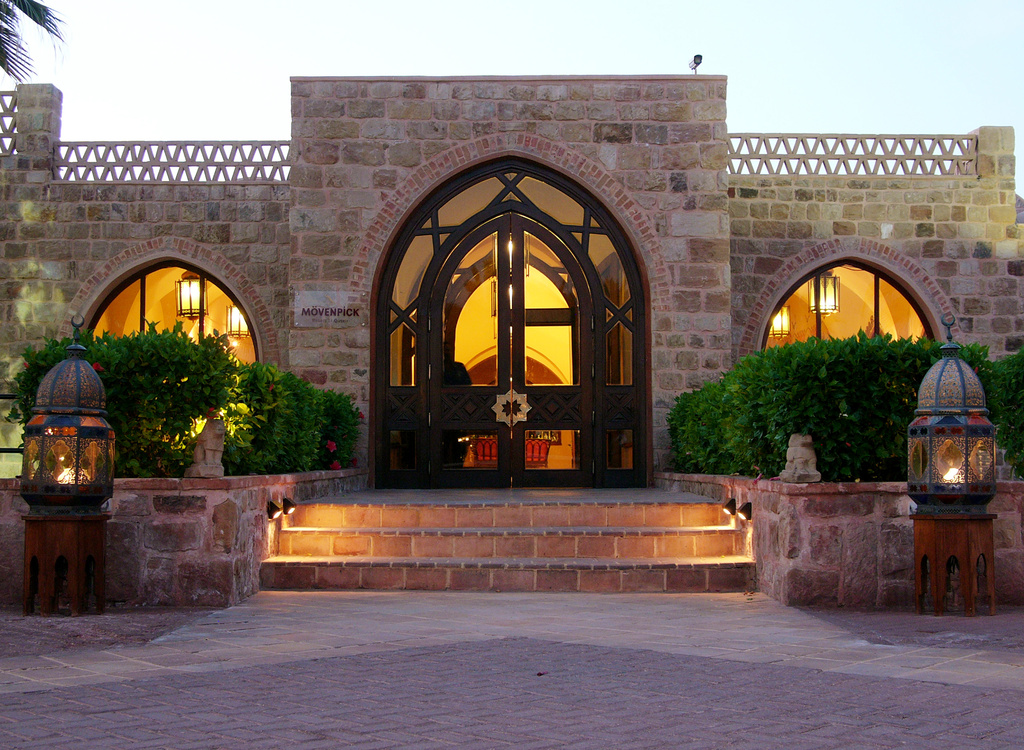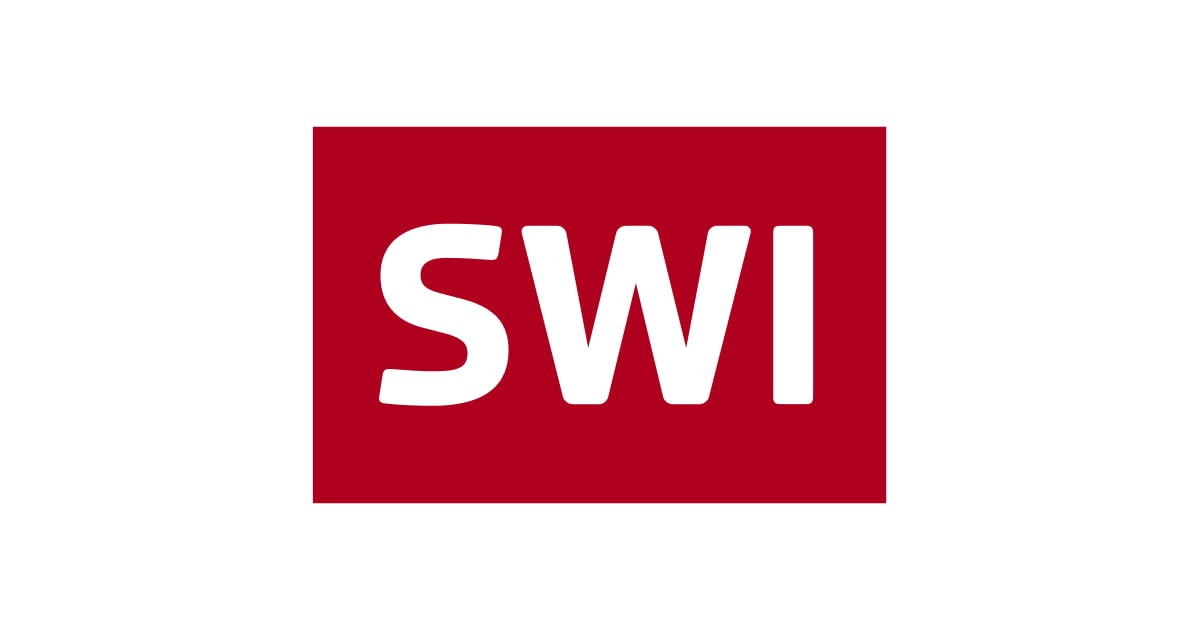The man who made Mövenpick

Mövenpick founder Ueli Prager who died at the age of 95 on October 15 was one of the most creative and enterprising Swiss businessmen of the post-war period.
With the exception of finding a successor, there was little Prager didn’t succeed at.
Everything considered de rigueur in the business world today, the Swiss restaurant owner and hotel pioneer had already applied in the middle of the last century: a label which achieved widespread recognition (Mövenpick), the ability to continually reinvent the brand and further the company’s scope (types of food, own-brand foods and hotels), globalisation (import trends, export growth), and using modern financing methods.
Prager introduced industrial structures to his business empire at a time when a conventional approach and certain snobbishness reigned in the Swiss hotel and restaurant sector.
The formula of selling fast but quality food proved to be a successful one. And for the Swiss, the chance to order something to eat outside the usual mealtimes was novel.
“Prager’s thirst for knowledge and his curiosity led him to discover new recipes while on vacation which he would present to his specialists back at home and insist on using them,” Urs Kneubühl told swissinfo.ch.
In the 1980s, Kneubühl was head of Mövenpick’s internal communications and responsible for the company’s customer magazine.
Currying Swiss favour
One of his most successful adaptations of exotic cuisine was Riz Casimir – a mild curry and rice dish with canned fruit. Curry dishes were not well known in Switzerland at the time and were too spicy for most Swiss palates.
And thanks to the industrial processes Prager introduced, Mövenpick could offer fish and other seafood at affordable prices. He also did away with tablecloths and three-course meals and customers could order wine and champagne by the glass if they didn’t want the whole bottle.
“Prager gave me a free hand – I could talk to him directly,” Kneubühl said. “He would inform me of important issues including those concerning management. He was on top of everything. It was wonderful to work with him.
“He didn’t keep his great knowledge to himself, and didn’t have any secrets but passed on what he knew which created a large body of talent [within the company]. The result was that we employees were very close to what was developed from his ideas.”
Late nights
This often led to calls from Prager late at night. Kneubühl, who at the time lived near the entrepreneur, would immediately head to Prager’s house so they could talk about the new projects.
“Many ideas came to him from his wide reading. We always asked ourselves where he found the time.”
Once implemented many of the ideas were hugely successful, Kneubühl added. These included the Mövenpick brands of coffee and ice cream – which were sold via licence holders in shops, fast food restaurants like Cindy’s Diner and Marché and the brunch concept which he adapted for the Swiss market.
In the 1970s Prager was the first to open a hotel at Zurich’s international airport. No one believed at the time that hotels were needed at airports. Nor did anyone think he would have success when, in 1986, he opened a hotel in Beijing.
He was often 20 years ahead of his time, said Hans-Peter Dürr, a former CEO of the Mövenpick hotel chain.
“I joined the company in 1973 and discovered that the most modern management methods were already in place,” he told swissinfo.ch.
“I became the youngest director of a city hotel. My counterparts were all at least 20 years older than me,” Dürr said.
“The entire training and further education, business plans and budgeting were taken for granted by Prager. At that time, eight of every ten Swiss who really made careers for themselves in the hospitality industry were products of the Prager school.”
Red Sea success
It’s no coincidence that Egyptian billionaire Samih Sawiris, who is building a mega resort in the Swiss alpine village of Andermatt, is trying to repeat what Prager did 40 years ago in Egypt.
The Sawiris family were partners with Prager for many years when the Swiss businessman established his hotel chain in Egyptian destinations like Gizeh, Luxor and on the Red Sea coast. The owners of the hotel buildings were Egyptian while Mövenpick took over the management.
Before Prager’s time, there were few Egyptians who would have thought holidaying on the Red Sea could become popular. And before the arrival of Sawiris, Andermatt was not considered a top ski resort.
It was Prager who showed that vacation resorts could be built from scratch in the middle of nowhere.
However, the company began to stagnate at the end of the 1980s. Prager, already over 70, had six children from three wives but was unable to find a worthy successor. It was his third wife and former assistant, Jutta, who would eventually take over management of the company in 1988.
As president of the board, Prager had to watch as his empire entered troubled times and top executives working under Jutta began to leave the firm.
He decided to dismiss his wife and in 1992 sold his majority stake to German businessman August von Finck. Shortly after that, the Pragers moved to London.
Ueli Prager was born in 1916 in the German town of Wiesbaden and died on October 15, 2011.
Prager, whose father managed Zurich’s Hotel Carlton Elite, studied economics at Zurich University.
He became a keen observer of the hotel business while working as a page at London’s Savoy hotel and the Mayfair, also in the British capital. His listed business empire began as a single restaurant in Zurich in 1948.
The Mövenpick logo is a stylised “V” shaped to resemble a seagull (Möve is the German word for seagull). When Prager was looking for a name for his restaurant, he spotted a seagull which elegantly picked up its food in mid-flight. To Prager, this was ideal since it would represent affordable, high quality food without having to wait.
1948: Ueli Prager opens the first Mövenpick restaurant in Zurich
1958: Mövenpick already employs 600 people
1962: The first fast food restaurant, Silberkugel, is opened – also in Zurich
1963: The first brand product, Mövenpick coffee, is launched
1968: First motorway restaurant opened in Deitingen (canton Solothurn)
1969: Mövenpick Ice Cream brand developed
1973: Start of the Mövenpick hotel group (Zurich airport, Zurich-Regensdorf)
1975: First hotels in Egypt, followed in 1980 by hotels in New York and Toronto
1983: Launch of the chain of Marché restaurants
1988: Prager’s wife Jutta takes over day-to-day management of company
1992: Prager’s majority stake sold to German businessman, August von Finck
2003: Ice cream brand sold to Nestlé
2007: Von Finck delists Mövenpick from the Swiss stock exchange, returning the company to a family-run enterprise
(Translated from German by Dale Bechtel)

In compliance with the JTI standards
More: SWI swissinfo.ch certified by the Journalism Trust Initiative













You can find an overview of ongoing debates with our journalists here . Please join us!
If you want to start a conversation about a topic raised in this article or want to report factual errors, email us at english@swissinfo.ch.